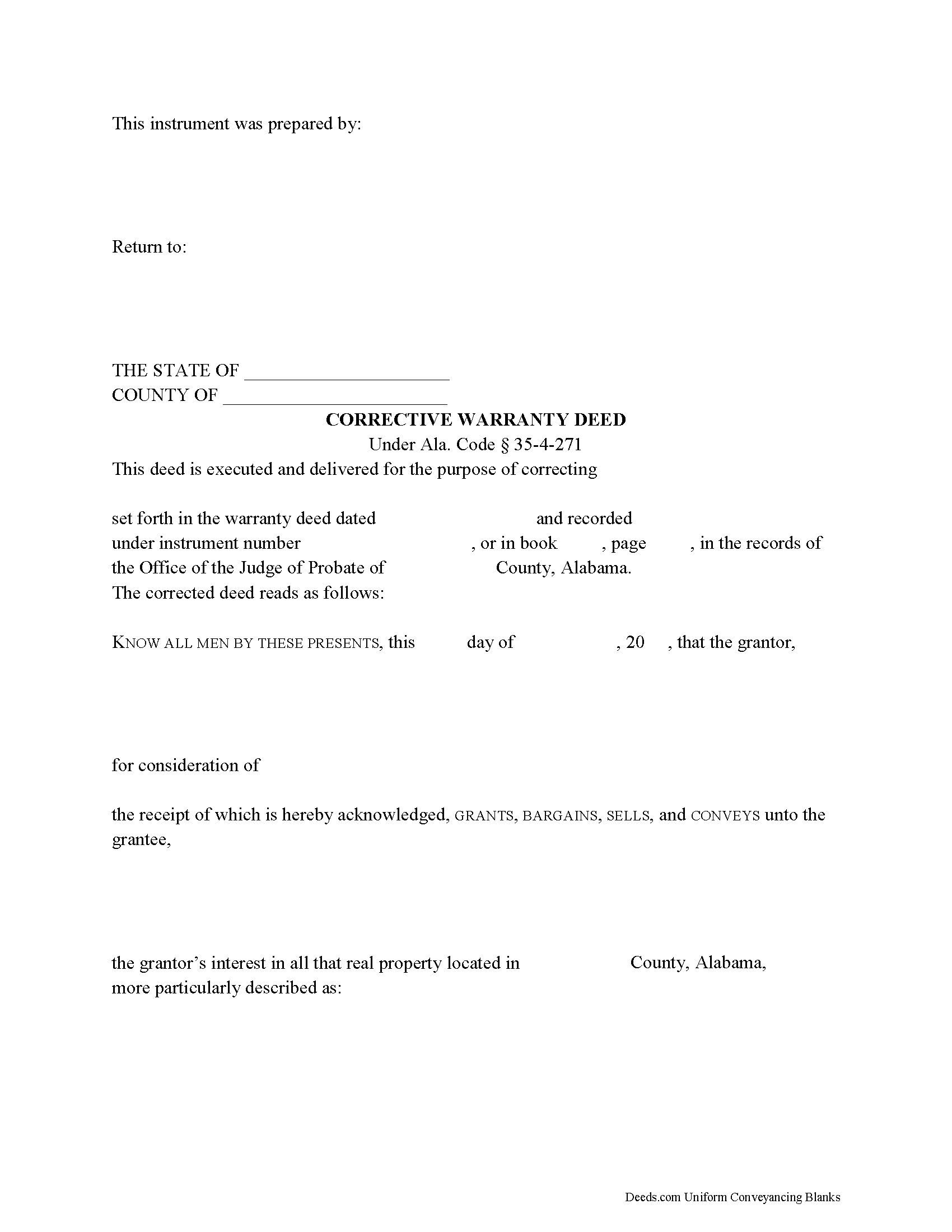Download Alabama Correction Warranty Deed Legal Forms

Alabama Correction Warranty Deed Overview

Corrective Warranty Deeds in Alabama
You just bought a new house, have your deed in hand, and you are ready to relax in your new home. But after taking another look at the deed, you notice a mistake in the legal description. Now what?
Alabama law provides for reformation of a deed by judicial intervention under (Ala. Code 1975, 35-4-150), but filing a corrective deed might be an option to resolve simple mistakes.
A corrective deed is an instrument used to fix an error in a deed that was recorded at an earlier date. It can only be used to correct non-material errors, causing no actual change in the substance of the deed. Common minor errors include misspelled names or missing information, such as marital status, or a mistake transcribing courses and distances in the legal description of the property. Major changes to the substance of the deed, or details that effect how property is titled require a new deed.
A corrective warranty deed has the same form as the previously recorded warranty deed containing the error and includes all the same information, in addition to correcting the error. The corrective deed states the nature of the error and recites the date and recording information of the erroneous deed.
The deed must be acknowledged before any of the officers listed in (Ala. Code 1975, 35-4-24). For the corrective deed to be valid, all parties who signed the prior deed must sign the corrective deed in the presence of a notarial official. The execution of a deed must be attested by at least one witness in Alabama (Ala. Code 1975, 35-4-20). If the grantor is married, Alabama requires that both spouses appear before an officer authorized by law to take acknowledgements of deeds and sign the deed (Ala. Code 1975, 6-10-3).
Most transfers of real property are subject to a privilege or license tax, but corrective deeds are exempt under Ala. Code 1975, 40-22-1, and do not require a Real Estate Sales Validation Form (Form RT-1).
This article is provided for informational purposes only and is not a substitute for legal advice. Contact a lawyer with questions about corrective warranty deeds or any other issues related to transferring real property in Alabama.